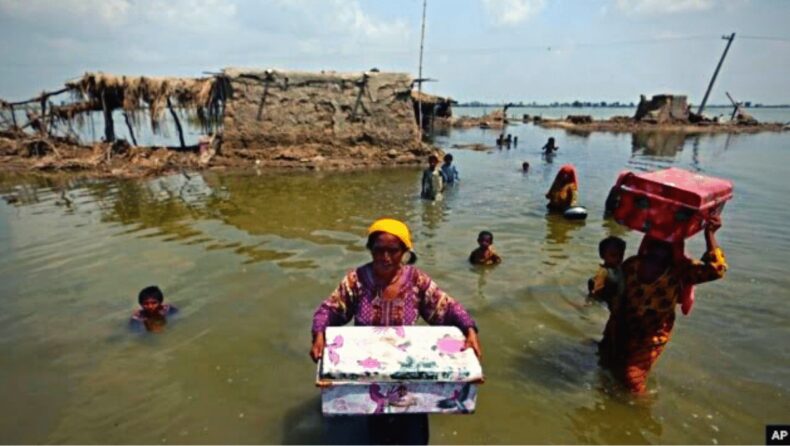According to the National Disaster Management Authority (NDMA), the overall death toll in Pakistan from the catastrophic floods has risen to 1,596, with 12,863 additional people suffering injuries.
According to the most recent NDMA estimates, since mid-June, the intense monsoon rains have caused flash floods that have wrecked 2,016,008 homes and killed 1,040,735 cattle nationwide.
In addition, the catastrophic rains and floods have destroyed 374 bridges, 12,716 kilometres (7,901 km) of roads, and numerous structures throughout the nuclear South Asian nation, which is already experiencing political and economic unrest.
Pakistan’s Catastrophic Floods and the Heightening Humanitarian Crisis
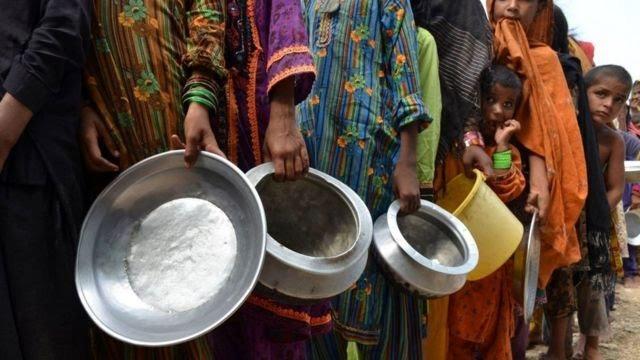
Approximately 16 million children have already been affected by the flood, and a minimum of 3.4 million of them require emergency life-saving assistance, according to UNICEF.
Millions of people were affected by the disastrous floods in 81 districts throughout the nation, and thousands of people are now living in tents.
https://www.dw.com/en/pakistan-floods-un-urges-help-as-disease-spreads/a-63197898
The catastrophic floods have affected more than 33,000,000 of the nation’s roughly 220 million inhabitants, resulting in a colossal loss of above $30 bn in destructions caused to an already frail infrastructure.
Flooding has already inundated about 45% of the nation’s agricultural area, severely endangering food security and exacerbating already alarming inflation.
One-third of the nation is currently underwater as a result of the country’s main river, the Indus, overflowing due to the heavy rains and melting glaciers, which have flooded enormous tracts of fields and plains.
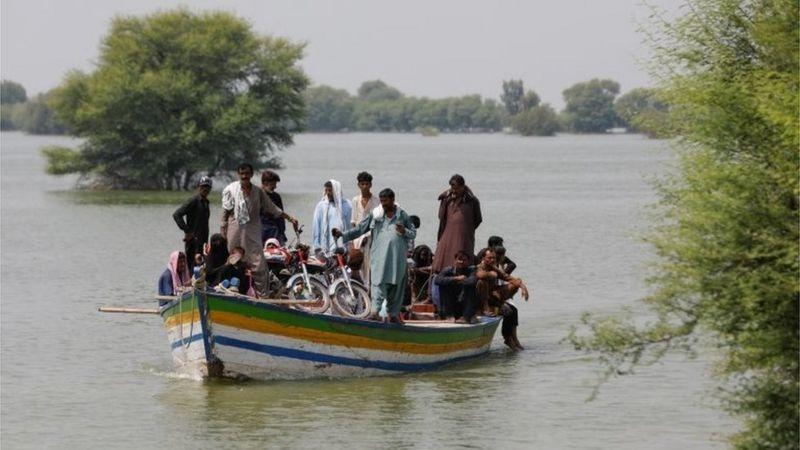
Recent media reports claim that these circumstances will likely cause Pakistan’s GDP growth to drop from the expected 5% to 3%, compounding the devastating damage caused by the floods.
The Effect of Climate Change on exacerbating the Floods in Pakistan
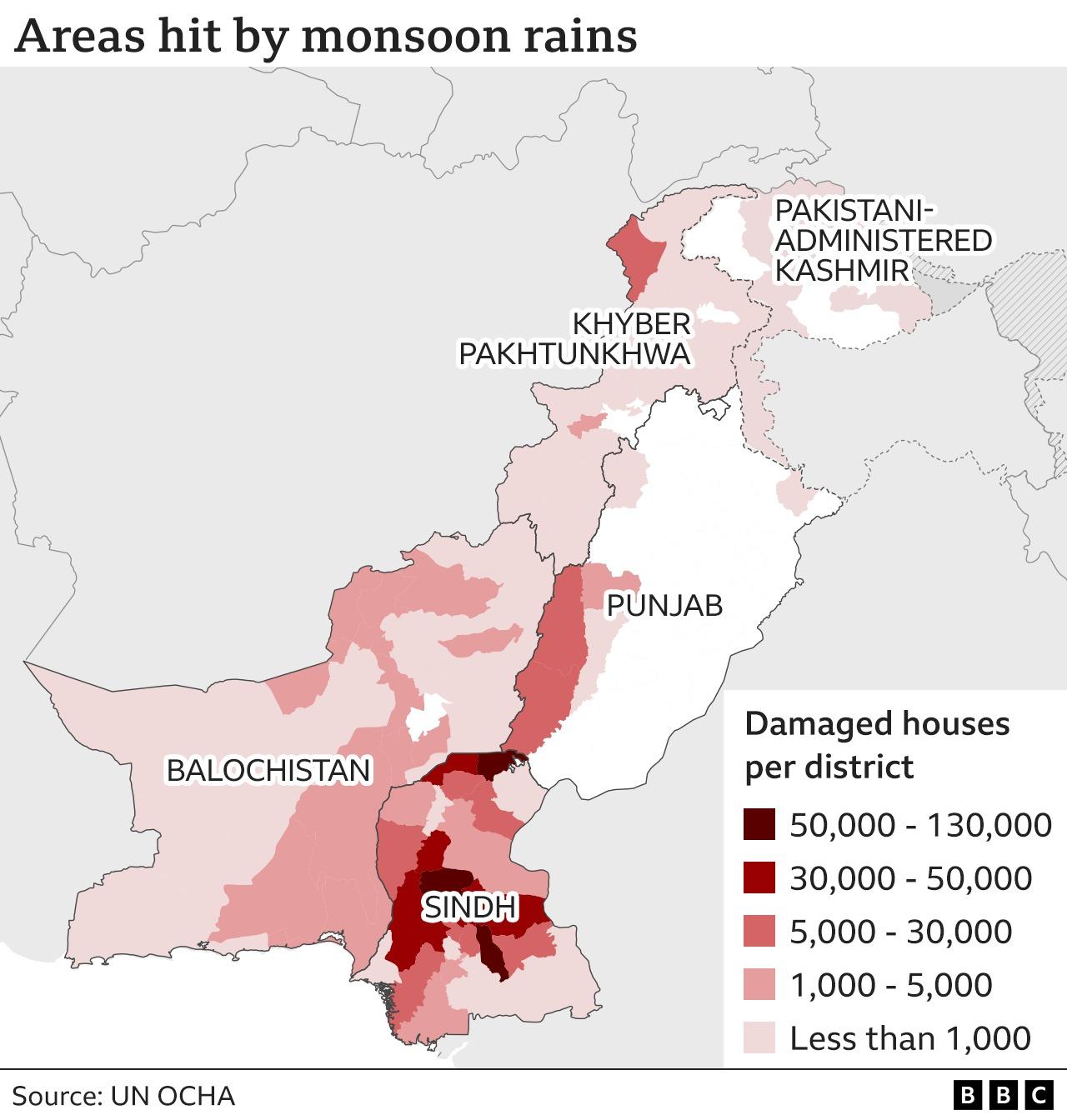
According to a recent analysis from the World Weather Attribution Network, the devastating floods in Pakistan this rainfall, particularly in August, was caused by global warming (WWA).
In July and August, Pakistan witnessed 391 mm (15.4 in) of rainfall, or roughly 190% higher than the 30-year average. For one of the hardest hit regions, the southern region of Sindh, that number increased to 466%.
In Pakistan, which has a population of roughly 220 million, floods were caused by heavy seasonal rainfall that was exacerbated by global climate change.
The devastation inflicted by floods is a result of both climate-related and human-induced variables. The floods of 2022, however, were undisputedly attributed to climate change. Pakistan has suffered intense heat, with summertime highs that consistently reached well over 45 degrees Celsius.
“Pakistan needs massive financial support. This is not a matter of generosity; it is a matter of justice.”
The UN Secretary-General António Guterres during his visit to the flood-affected regions of Pakistan.
The issue of global climate inequality has also been accentuated by the recent climate change catastrophe in Pakistan. Inequality caused by global warming has also come to light as a result of the floods. The Global Climate Risk Index ranks Pakistan amongst the top ten most vulnerable countries to the consequences of climate change despite its less than 1% contribution to global greenhouse gas and carbon emissions.
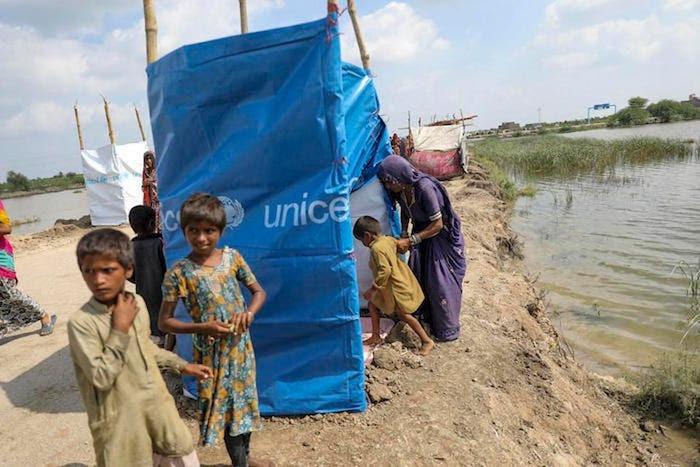
Following recent severe floods, Pakistani health professionals are expressing concern about an imminent health emergency in the nation. The United Nations recently issued a warning that outbreaks of typhoid, diarrhoea and malaria are growing quickly as millions of flood refugees sleep outside near stagnant water or in makeshift shelters.
Disasters will become more severe if urgent action is not taken to boost preparedness, mitigation, and adaptation for the impending climate crisis.
Millions of people in Pakistan are still deeply affected by catastrophic flooding which “is not going anywhere”,
UN relief agencies declared on Tuesday.
In compliance with the 2015 Paris Agreement of the United Nations Framework Convention on Climate Change (UNFCCC), Pakistan has requested reimbursement for losses and damages. Since the floods occurred, it has demanded reparations from nations that have historically emitted a high proportion of greenhouse gases, such as the USA and Europe.
By now, 116 flights providing humanitarian relief from Saudi Arabia, Turkey, France, Uzbekistan, the United Arab Emirates, China, Russia, the US, the United Kingdom, Jordan, Oman, Nepal, Turkmenistan, UNHCRWorld Food Program, UNICEF, and they have landed in Pakistan.







